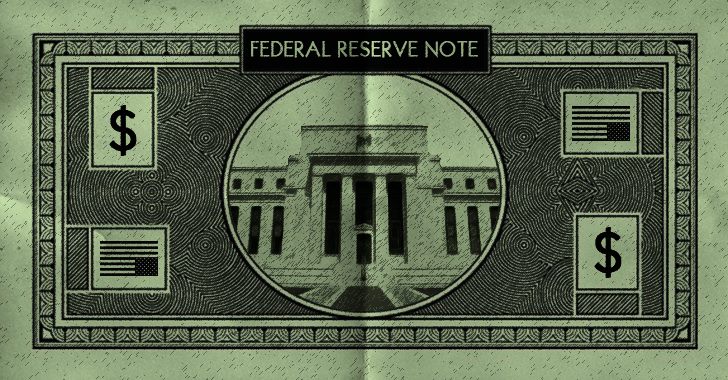Federal Reserve Says Not to Worry About a Financial Crisis – That Means You Should
Most people haven’t studied economics and don’t understand the contributing factors that led to the Great Recession, so they still view the Federal Reserve as a hero that saved the country from total collapse. But those who are informed understand that the financial bubbles seen over the last 20 years have been directly caused by reckless central bank intervention in the markets.
The supposed ‘expert officials’ at the Fed never seem to warn of a recession ahead of time but, instead, consistently encourage investors to buy in right before the bottom drops out. The Fed’s arrogance was on display yet again this week as chairman Janet Yellen made a bold statement about America’s economic future.
While speaking Tuesday she confidently stated:
Will I say there will never, ever be another financial crisis? No, probably that would be going too far. But I do think we’re much safer and I hope that it will not [happen] in our lifetimes and I don’t believe it will.
When asked if regulations on the system put in place during the last crisis should be loosened, she continued:
We’re now about a decade after the last crisis hit and memories do tend to fade so I hope that won’t be the case and I hope that those of us who lived through it will remind the public that it’s very important to have a safer sounder financial system and it is essential to sustainable growth.
The regulations she’s talking about include the protections on the too-big-to-fail banks and grant even more authority for the Federal Reserve to act unilaterally in times of crisis. If they can keep the general public ignorant about the consequences of injecting trillions of dollars into the markets — and until recently, keeping interest rates at zero — then the fear that arises during the next downturn will give them the green light to do even more damage to the economy.
 This kind of rhetoric is Wall Street’s wet dream and solidifies their belief that no matter what happens, Janet will ride in on a White Horse to save the day. After all, someone in that prestigious a position must be more intelligent and qualified than anyone else to make such a prediction, right?
This kind of rhetoric is Wall Street’s wet dream and solidifies their belief that no matter what happens, Janet will ride in on a White Horse to save the day. After all, someone in that prestigious a position must be more intelligent and qualified than anyone else to make such a prediction, right?
The hubris of her remarks should bring back memories of similar statements made by Ben Bernanke in the years prior to the housing market melting down. He continuously bragged about clear skies ahead, never once uttering a word of doubt about the stability of the American economy.
Some of his most notable remarks include:
“The impact on the broader economy and financial markets of the problems in the subprime market seems likely to be contained.” (March 28, 2007)
“Despite the ongoing adjustments in the housing sector, overall economic prospects for households remain good. Household finances appear generally solid, and delinquency rates on most types of consumer loans and residential mortgages remain low.” (Feb.15, 2007)
“It is not the responsibility of the Federal Reserve – nor would it be appropriate – to protect lenders and investors from the consequences of their financial decisions.” (Oct. 31, 2007)
“The Federal Reserve is not currently forecasting a recession.” (Jan. 10, 2008)
“[The U.S. economy] has a strong labor force, excellent productivity and technology, and a deep and liquid financial market that is in the process of repairing itself.” (Jan. 18, 2008)
“The risk that the economy has entered a substantial downturn appears to have diminished over the past month or so.” (June 9, 2008)
“The Federal Reserve will not monetize the debt.” (June 3, 2009)
Obviously, during that time, evidence was mounting that contradicted his statements, but many hoped against all hope that Bernanke knew best. Similarly, today there is continuous economic data emerging that highlights the underlying weaknesses in the U.S. economy.
Downturns in the auto industry and housing market, along with record consumer debt are just a few preliminary signs that something is fundamentally wrong. This doesn’t point to an imminent crisis, but Janet Yellen’s overconfidence should send a chill down the spine of investors worldwide. Rhetoric is a tool the Fed uses to guide confidence in its fiat Ponzi scheme, and this new level of blind faith in central bank power would be funny if the implications weren’t so serious.

As things continue to deteriorate, the central planners will do what they always do — impose more quantitative easing and interest rate cuts. Even Fed officials are admitting that when the next recession hits, their response will be more of the same: print money to artificially prop up the bond and stock markets. Savers and wage earners will continue to be punished, while those wealthy enough to hold large stock portfolios soak up the benefits of this ongoing manipulation.
Easiest way to get your first bitcoin (Ad)
The entire nation has been lulled into an apathetic fog and is continuously, effortlessly guided by the most corrupt institution in modern times. As you hear that everything is rosy, remind yourself that the talking heads on CNBC and Fed officials are looking out for their own interests, not yours. After more than eight years of the most extreme economic intervention in history, the U.S. economy is still limping along like an old dog ready to be taken behind the tool shed.



